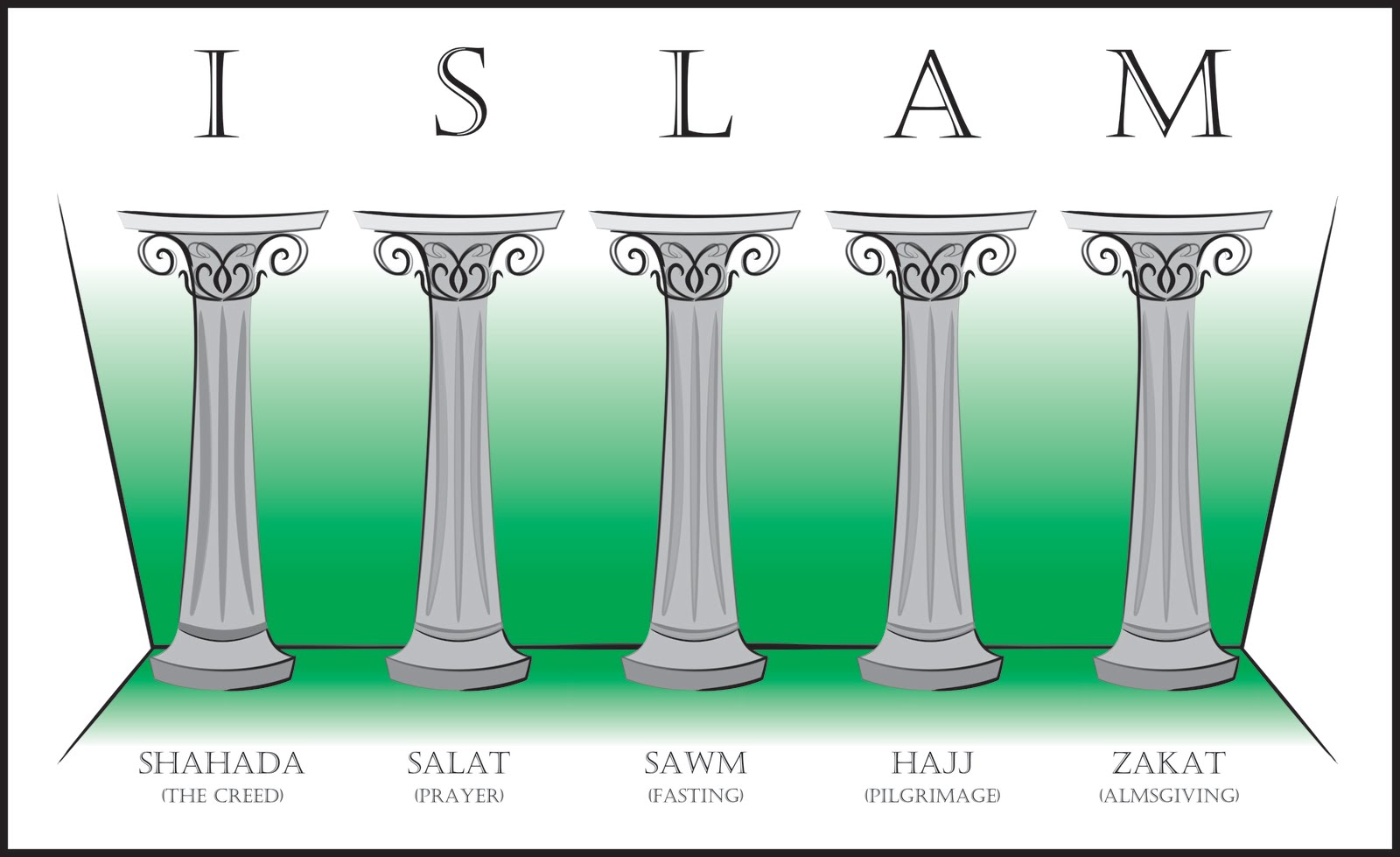Five Pillars of Islam Faith

The five pillars of Islam are Shahada, Salah (prayer), Zakat, Sawm (fast) and Hajj (pilgrimage). All Muslims accept these basic obligatory principles of Islam regardless of sect, ethnicity, or region. Everyone is different and living in different circumstances. Upholding these five pillars of Islam’s faith depends on many factors such as age, education, work, health, wealth, and family responsibilities. Each Muslim should fulfill these duties as per direction in their lifetime. They are the foundation of Islam. A Muslim must profess his/her faith in Allah, pray five times a day, give charity to the less fortunate, fast during Ramadan, and at least once perform hajj (journey to Mecca) during his/ her lifetime. Muslims must learn to perform these duties as prescribed. They also learn and understand the purpose and importance of these pillars in the overall scheme of Islam. It’s proven by science that they provide great physical, psychological, and spiritual benefits to human beings.
Seeking knowledge is made compulsory for every Muslim and learning about these basic pillars of Islam is a must. There are many resources available online that help Muslims all over the world learn about Islam. This is especially beneficial for Muslims who are living in Western countries as they don’t have easy access to such resources. But it also helps people with busy schedules which does not allow them to attend conventional institutions. Online Quran Classes offer flexibility to attend these classes at a convenient time.
Going to explain the five pillars of Islam briefly,
Shahada -1st pillar of Islam
“The declaration of faith” or Shahada is 1st pillar of Islam. Its literal meaning is, “There is no God but Allah, and Muhammad (PBUH) is His prophet.” It distinguishes a believer from a non-believer. Reciting it in front of a witness with conviction is the requirement to become a Muslim. There are many resources available both online and offline that can be used to understand Islam and shahada.
Salah – 2nd pillar of Islam
Daily ritual prayer or Salah is the 2nd pillar of Islam. It is performed five times a day in the direction of Mecca. On Friday Jum ‘a, or congregational prayer is offered. Men are ordered to pray in a mosque while women can offer at home. Now thanks to technology, Muslims can learn about Salah in detail. There is no need to look around as it is available at your fingertips. Just memorizing isn’t enough but understanding its deeply embedded meaning is crucial. Only then we will be able to properly offer our prayers.
Zakat – 3rd pillar of Islam
Alms-giving or zakat is the 3rd pillar of Islam. Zakat is donating a specific percentage of 2.5% on surplus wealth. Eight kinds of receivers are specified in Islam for Zakat including the poor, needy, orphans, passengers, refugees, and war victims. The money can also be used to build drinking fountains, mosques, schools, hospitals, etc. Muslims must have complete knowledge of Zakat, Nisab, and receivers. This will help them to distribute donations to deserving people who meet the criteria.
Sawm- 4th pillar of Islam
Fasting or sawm is the 4th pillar of Islam. Muslims perform obligatory fasting during the holy month of Ramadan. Fasting includes no drinking and eating during daylight hours. It’s to instill the empathy for poor and gratitude for Allah’s blessing in Muslims through temporary deprivation. The empathy for the poor through fasting will serve as a reminder to help those in need.
Hajj – 5th pillar of Islam
Pilgrimage or Hajj is the 5th pillar of Islam. Thousands of people all around the world perform Pilgrim to Mecca every year. Performing it at least once is a must for every Muslim whose finances and health permit it. Hajj is performed in a simple white garment, deprived of all worldly possessions. All Muslims perform the same rituals embodying unity and reminding everyone that, we are all equal before Allah.
Every Muslim must commit to learning the five pillars of Islam and their importance. The complete knowledge will help us understand the depth of prayers and thus of Islam. Al-Quran Academy like many other online academies helps Muslims learn and understand the five pillars of Islam faith in detail.
Conclusion
Those who understand better will do better. Learning the five pillars of Islam faith is an obligation. Technology and online academies made it extremely easy and accessible. We should make use of these resources to better our understanding of Islam.





